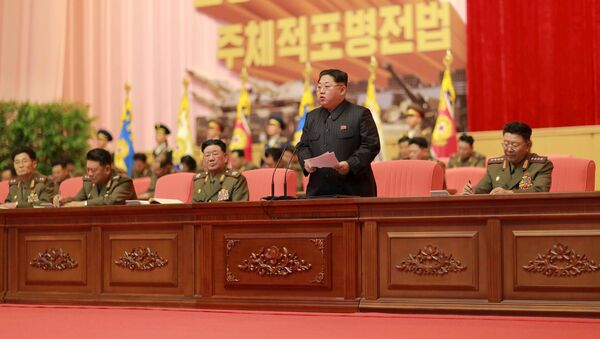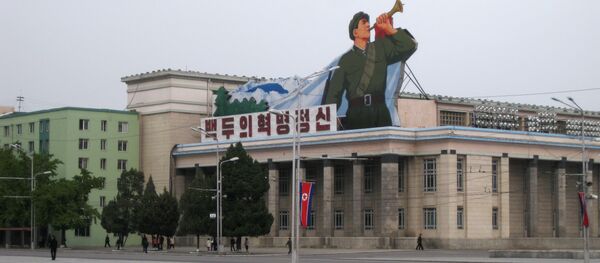"The state managed to become a powerful nuclear power capable of defending its sovereignty and national dignity by mighty nuclear and hydrogen strikes," Kim Jong-un was cited by the Korean Central News Agency (KCNA) as saying.
Pyongyang is ready to continue with actively developing its military industry so that "no enemy would dare to provoke the country," the North Korean leader said.
So far it has not been confirmed that the country has in fact designed and created a hydrogen bomb.
In 2003, Pyongyang withdrew from the international Nuclear Non-Proliferation Treaty (NPT), a deal that was intended to prevent the spread of nuclear weapons manufacturing and possible use. Following Pyongyang's withdrawal, the so-called Six-Party Talks were launched to ease the threat posed by North Korea's nuclear weapons program through negotiations involving Russia, China, the United States, South Korea and Japan.
In 2005, North Korea declared itself a nuclear power, and conducted several nuclear weapon tests, sparking concerns in the international community. Almost four years later, Pyongyang tested additional nuclear weapons and, without warning, walked out of the Six-Party Talks.
The official data on the country's nuclear program is not released, and the research on the issue is based on external observations and reports made by North Korean authorities.



